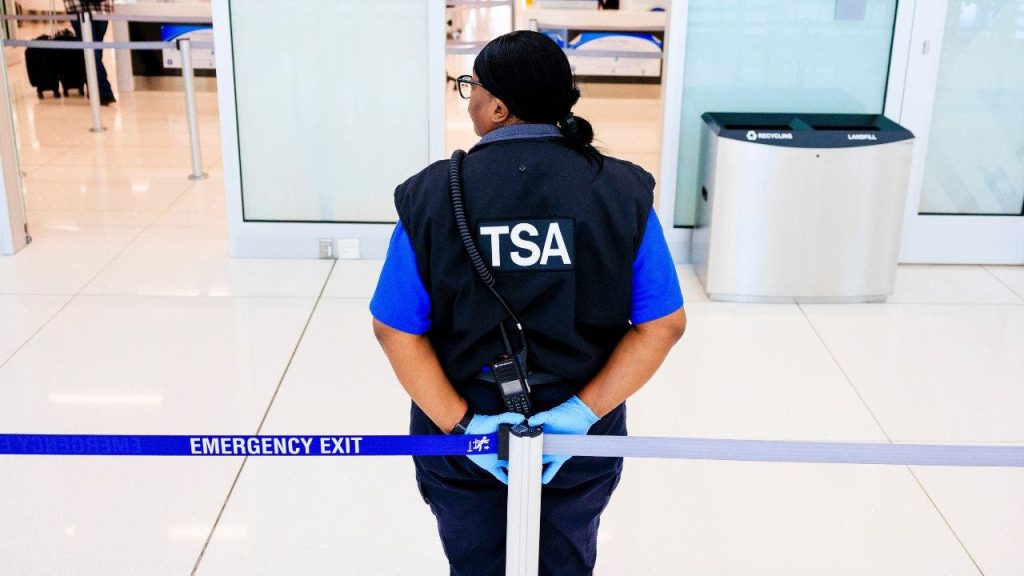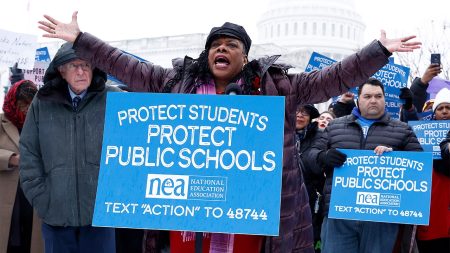TSA Transgender Officer Files Discrimination Lawsuit Over Pat-Down Policy
At Dulles International Airport in Virginia, transgender TSA officer Danielle Mittereder has found herself at the center of a complex legal battle that highlights the ongoing tensions between evolving gender identity policies and more traditional viewpoints. Mittereder recently filed a federal lawsuit against the Department of Homeland Security, alleging sex discrimination after a new policy was implemented that prevents transgender officers from performing certain security screening procedures. The lawsuit claims that these restrictions not only limit her ability to perform core job functions but also block potential promotions and specialized certifications, essentially creating a workplace where her gender identity subjects her to “unwanted and undue scrutiny” every day.
The policy change, implemented earlier this year, represents a significant shift from previous TSA practices. Until February, TSA had assigned work consistent with officers’ gender identities under a 2021 management directive, allowing transgender officers to perform the full range of duties associated with their positions. However, the new guidelines stipulate that only biological males can perform pat-downs on male passengers and only biological females can perform pat-downs on female passengers, regardless of an officer’s gender identity or transition status. This change extends beyond pat-downs, as transgender officers are also no longer permitted to serve as witnesses when travelers request private screenings, and they are reportedly barred from using restrooms that align with their gender identity.
This policy shift didn’t occur in a vacuum but rather stems directly from an executive order issued by President Donald Trump on January 20, titled “Defending Women From Gender Ideology Extremism and Restoring Biological Truth to the Federal Government.” The sweeping order mandated that the federal government recognize only two sexes—male and female—defined exclusively by biological sex “at conception.” The TSA’s implementation of this directive represents one of the first concrete examples of how this executive order is changing workplace policies across federal agencies. Jonathan Puth, Mittereder’s attorney, has called the policy “terribly demeaning and 100% illegal,” suggesting that this case may become an important test of how civil rights laws protect transgender individuals in federal employment.
The Department of Homeland Security, however, has pushed back strongly against suggestions that the policy constitutes discrimination. In a pointed response to media inquiries, DHS spokesperson Tricia McLaughlin questioned whether critics would prefer “female travelers to be subjected to pat-downs by male TSA officers,” characterizing such an arrangement as “a useless and fundamentally dangerous idea” that prioritizes what she termed “mental delusion over the comfort and safety of American travelers.” This language reflects the sharply different perspectives at play, with the administration viewing the matter through the lens of passenger safety and comfort while Mittereder and her supporters frame it as a matter of workplace rights and equality.
The lawsuit unfolds against a backdrop of similar legal challenges across the country, where questions about transgender participation in various spheres have become increasingly contentious. In Minnesota, for instance, a judge recently dismissed a lawsuit filed by female softball players who had challenged the inclusion of a transgender pitcher in their league. These cases represent different facets of the same fundamental question: how should society balance the rights and identities of transgender individuals with concerns raised by others about privacy, safety, and fairness? The TSA case is particularly significant because it involves a federal agency directly implementing a presidential executive order, potentially setting precedents for how similar policies might be crafted and enforced across government.
For Danielle Mittereder, this isn’t just about abstract policy debates but about her daily lived experience and career prospects. The lawsuit details how the new restrictions affect not just her current job functions but also her potential for advancement within the agency. By being barred from performing certain screening procedures and witnessing private pat-downs, she faces practical limitations on her ability to fulfill the complete range of duties associated with her position. Furthermore, the complaint suggests that these limitations could prevent her from obtaining promotions and specialized certifications that require proficiency in the full spectrum of TSA screening procedures. The outcome of this case could therefore have profound implications not just for Mittereder herself but for transgender federal employees across numerous agencies who might face similar restrictions under the executive order.
As this lawsuit progresses through the federal court system, it will likely force a deeper examination of how civil rights laws protecting against sex discrimination apply to transgender individuals in the workplace. The case raises fundamental questions about whether policies that distinguish between transgender and cisgender employees performing identical job functions constitute illegal discrimination, or whether they represent reasonable accommodations for passenger privacy concerns. Whatever the outcome, Mittereder’s lawsuit highlights the complex intersection of identity, privacy, security, and workplace rights that continues to challenge our legal frameworks and social understanding. As society continues to navigate these questions, cases like this one will help shape not only federal employment policies but also broader conversations about how we balance competing values in an increasingly diverse nation.











